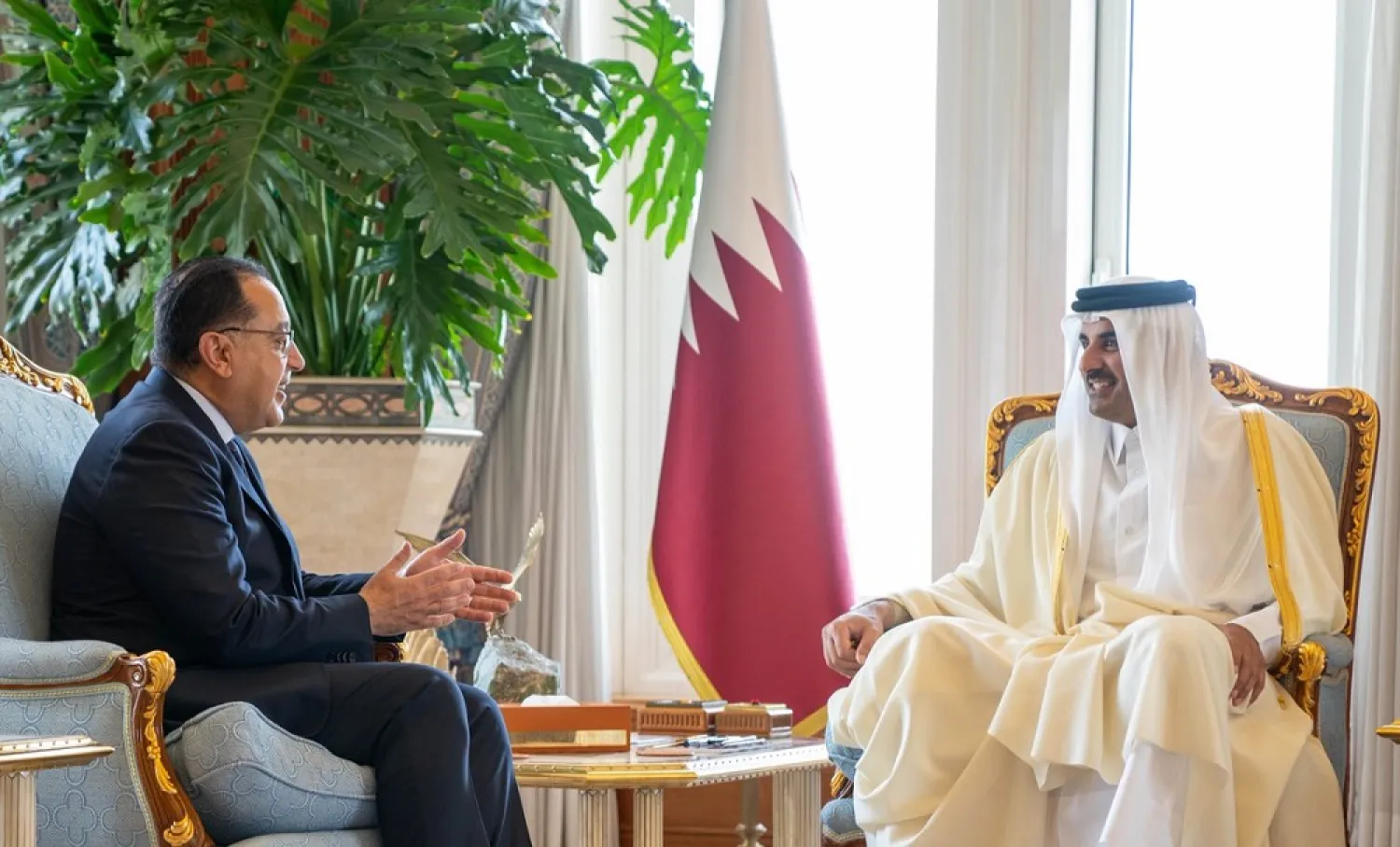Emir of Qatar Sheikh Tamim bin Hamad Al-Thani held talks in Doha on Monday with Egyptian Prime Minister Mostafa Madbouly.
It was the first visit by an Egyptian premier to Qatar in nearly a decade.
Sheikh Tamim and Madbouly reviewed cooperation relations between their countries and ways to develop them.
They also tackled regional and international developments of interest, reported Qatar’s state news agency (QNA).
Madbouly described Egyptian-Qatar relations as “strong,” underlining his country’s keenness on increasing the size of Qatar investments in Egypt.
He also expressed keenness on increasing trade between Cairo and Doha, saying it currently “falls short of the capabilities of the countries and the aspirations of their people.”
The PM’s visit is another sign of the improved relations between Egypt and Qatar.
Egyptian President Abdul Fattah al-Sisi had paid a visit to Qatar in September, his first since coming to power in 2014.
The trip was possible after the signing of the AlUla Declaration in Saudi Arabia in January 2021. The declaration helped resolve the dispute between Saudi Arabia, the United Arab Emirates, Bahrain and Egypt with Qatar.
Sheikh Tamim said on Monday that relations with Egypt are developing positively
He noted that despite global challenges, Egypt still boasts great capabilities, adding that it was necessary for its development plans to continue.









